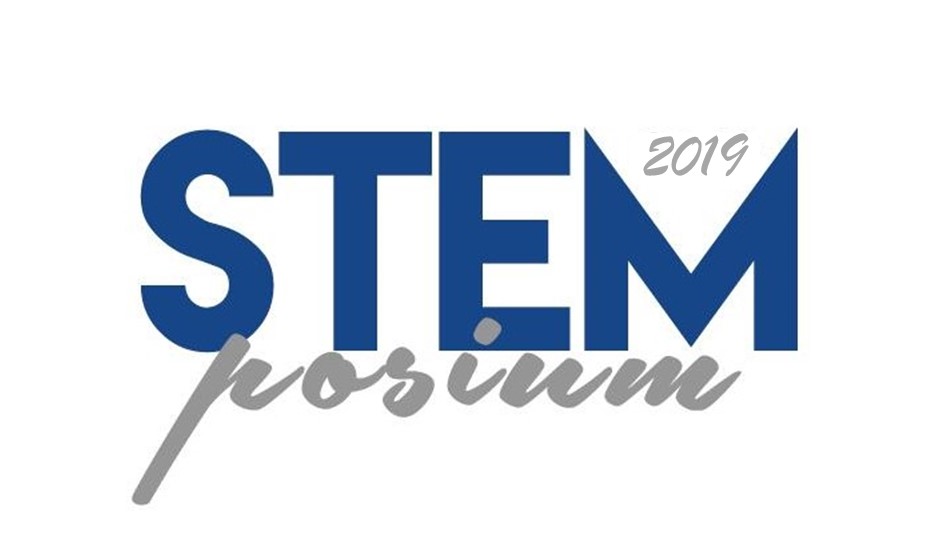Students Can’t be What They Can’t See!
STEM: All Access Pass
An exploration of how we can use STEM in Education to support all kids, especially our most marginalized, to civically engage in our global, STEM-driven world and have access to high-paying, high-demand careers.
See \ˈsē \ (verb)
To perceive by the eye
To have an experience of
To imagine as a possibility
To come to know, discover
To perceive the importance of, understand
Students need opportunities to see STEM in action. They need to see cutting edge technologies and innovations, hands-on learning, and school content applied to real-world contexts. They need to see STEM connections to their communities - solving problems important to them - and most importantly, students need to see that they have a critical role to play. STEM is for THEM - an All Access Pass to success.
Are you an educator, business/industry person, community organization staff, parent or anyone interested in providing students with the best possible STEM experience? Then register now to be part of the conversation!
Rhonda Shelby, Meteorologist KATU
Event Emcee
Hear what the following speakers have to say and then participate in one of four breakout sessions:
A Panel of Regional Legislators:
Representative Margaret Doherty, Chair of the House Education Committee
Representative Janeen Sollman, Member of the House Education Committee
Representative Andrea Salinas, Chair of the House Committee on Health Care
Representative Sheri Schouten, Vice-Chair on the House Committee on Energy & Environment
Roundtable Discussion on and implications of Kids Can’t be What They Can’t See:
Stefan Bird, President & CEO, Pacific Power; Chair, Oregon STEM-CTE Employer Coalition
Lindsey Garcia, Director of Education & MESA Regional Coordinator, Centro Cultural de Washington County
Robert Hillhouse, Secondary English Language Programs Teacher on Special Assignment, Beaverton School District
Kristin Moon, K-12 STEAM Teacher on Special Assignment, Portland Public Schools
Scott Nine, Deputy Director for Strategy and Program, National Public Education Support Fund
Rhonda Shelby, Meteorologist, KATU
Concurrent Breakout Sessions
The areas of Environment, Technology, Health, and Innovation offer primary opportunities for our youth to engage in our changing world. In four concurrent breakout sessions, we’ll explore how we, as a community, bring opportunities for more students to see and develop STEM skills. Most importantly, we’ll identify the actions can we take to help.
Each of the breakout sessions will explore how we, collectively, might bring opportunities for more students to see and experience STEM opportunities, and the actions we can take.
1 - Environment
The word “Environment” means different things to different people. For some, it connotes stewardship of the natural environment, observing and protecting species, etc. For others, it means environmental science and outdoor school. For others, it means developing policies to prevent pollution, and for others still, it refers to green energy and new jobs.
Facilitators: Cristina Trecha, Oregon Science Project; Fawn Bergen, Intel Global Public Affairs & Sustainability Group; Ely O'Connor, Education & Outreach, Government & Public Affairs at Clean Water Services; Jake Wise, Smart Cities Program Manager at Portland General Electric
2 - Technology
When people think of “Technology” they often think of computers and coding. Seeing technology as tools is even more encompassing, and includes everything from pencils to power plants, rulers to robotics, and a vise to virtual reality. Technology impacts our economy and the types of jobs available, changing opportunities as automation grows and artificial intelligence develops. Access to technology also impacts learning and other opportunities for our students with the Digital Divide and Digital Deserts impacting marginalized communities disproportionately.
Facilitators: Scott Nine, Deputy Director for Strategy and Program, National Public Education Support Fund; Tamara DePue, Program Manager at Oregon MESA; Jamie Sherman, Cultural Anthropologist & UX Lead for Gaming at Intel
3 - Health
What do you think of when you hear the word “Health”? Most people will think first of their individual health and wellness. We seek to explore how health is also a context for learning connected to healthcare, the science of health and life, and engineering tools to improve health and quality of life. Helping students see the many community factors that impact both individual and community health is also vital. Health is all of these things and more, and healthcare is the largest job sector in Oregon.
Facilitators: Kristen Harrison, Co-Director at Portland Metro STEM Partnership; Caitlin Everett, K-12 Science TOSA at Beaverton School District & HS Biology Regional Curriculum Co-Author; Andrew Lamkin, Health & Life Sciences Platform Solutions Architect at Intel; Tiffany Windle Hanson, Next Generation Science Standards Consultant
4- Innovation
How do we prepare our youth for a global economy driven by STEM? How do we cultivate innovators so that our youth are not simply responding to our quickly changing world but are positive drivers of change? Global citizenship and innovation are connected and benefit from similar mindsets and skills like the ability to collaborate, to think critically about complex problems, analyze often contradictory information and data, and the willingness to take risks and “fail forward”. These same mindsets and skills are often required in our high-demand, high-wage careers.
Facilitators: Jerian Abel, Co-Director at Portland Metro STEM Partnership; Kristin Moon, K-12 Science/STEAM TOSA at Portland Public Schools & Lemelson Foundation Professional Development Lead; Shashi Jain, Innovation Manager at Intel
Thank you to our STEMposium sponsors:
Interested in sponsorship? Let us know at info@pdxstem.org






